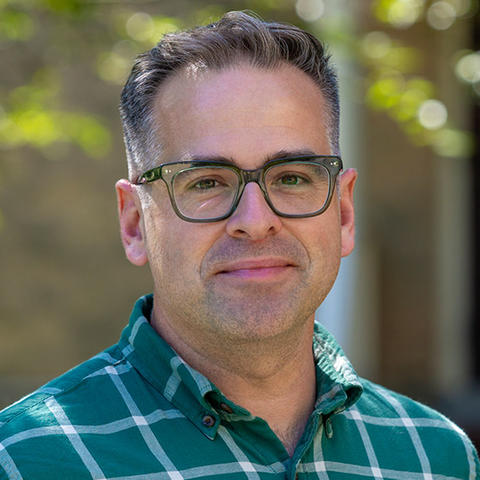Two Haverford Students Receive Goldwater Scholarships

Aamina Dhar and Gabe Jones-Thomson, both members of the Class of 2025, received Barry Goldwater Scholarships. Photos by Patrick Montero.
Details
The aspiring scientists will leverage their scholarships to advance their organic chemistry research and uncover innovative ways to diagnose schizophrenia.
Aamina Dhar '25 and Gabe Jones-Thomson '24 have each been awarded a 2024-2025 Barry Goldwater Scholarship, marking the second year in a row that two Fords have received the honor. The scholarships, provided by the Barry Goldwater Scholarship and Excellence in Education Foundation, recognize exceptional students who plan to pursue careers in the natural sciences, mathematics, or engineering.
Dhar and Jones-Thomson are among the 508 college students to receive this year’s batch of scholarships, which are named after the World War II veteran, long-serving U.S. Senator from Arizona, and unsuccessful 1964 Republican presidential candidate.
Dhar is a math major from Maryland who plans to pursue a PhD in biomedical engineering and neuroimaging. Her focus, she says, will be to explore the possibilities of medical imaging, computational modeling, and artificial intelligence to uncover innovative methods to diagnose schizophrenia in its earliest stages.
“Schizophrenia is a subtle disease,” says Dhar. “It occurs in a gradient, from imperceptible to profound and devastating. First, it starts with negative symptoms — a lack of emotion, a lack of expression, a lack of speech. Then it evolves into the positive symptoms: delusions, hallucinations, psychosis. How can such a disease progress, marching silently but surely to a point of no return?”
Dhar’s interest in helping combat the disease was kindled in high school when she interned, virtually, with a start-up company that was investigating the use of augmented reality to ameliorate schizophrenia’s negative symptoms. She entered Haverford as a prospective neuroscience major but switched majors to strengthen her foundation in pure math concepts after learning about new research that identifies structural landmarks on the brain that may signal the development of diseases like schizophrenia or Alzheimer’s.
“There’s really interesting research being done, but I realized I needed to have the vocabulary and the way of thinking to parse through those papers or to apply what I learned in math to neuroscience,” Dhar says. “I also discovered that I really liked math and hadn’t been given the opportunity to just do math for fun, but we get that opportunity at Haverford.”
Jones-Thomson is a chemistry major who, after obtaining a PhD, hopes to embark on a career in organic chemistry that will yield discoveries of new synthetic tools for selectively constructing biologically active, medicinally relevant molecules. New techniques that are sustainable, low-cost, and that can offer unique access to complex structures, he says, are critical for the development of novel pharmaceuticals, agrochemicals, and materials.
At Haverford, Jones-Thomson says three chemistry faculty were particularly influential. His advisor is Professor of Chemistry Alex Norquist ("a great scientific mentor") and he also took classes with Associate Professor of Chemistry Frances Blase, who retired earlier this year, and former Visiting Assistant Professor of Chemistry Grant Spoors.
“I vividly remember the day when [Spoors] — who worked in the industry for decades — showed me a news article announcing a breakthrough drug that extends the lives of patients with Stage 4 metastatic breast cancer by a full year,” he says. “He showed me the specific part of the drug molecule that he figured out how to synthesize, and I was inspired by the real-world connection between our daily lab work and developing treatments for debilitating illnesses.”
To prepare himself for a rigorous PhD program, Jones-Thomson has pursued every opportunity to explore organic chemistry research and coursework at Haverford and has taken graduate-level courses in topics like organic synthesis and organometallics at Bryn Mawr. This summer, he participated in a National Science Foundation-funded Research Experience for Undergraduates in Professor Corinna Schindler's University of Michigan lab under the mentorship of Dr. Benjamin Niu, where, he says, he was “surrounded by exceptionally intelligent and hard-working graduate students who were excited about their work.”
The experience left him invigorated and eager to immerse himself in the world of high-level organic chemistry research.
Read more about Fords who have won fellowships, scholarships, or grants.




